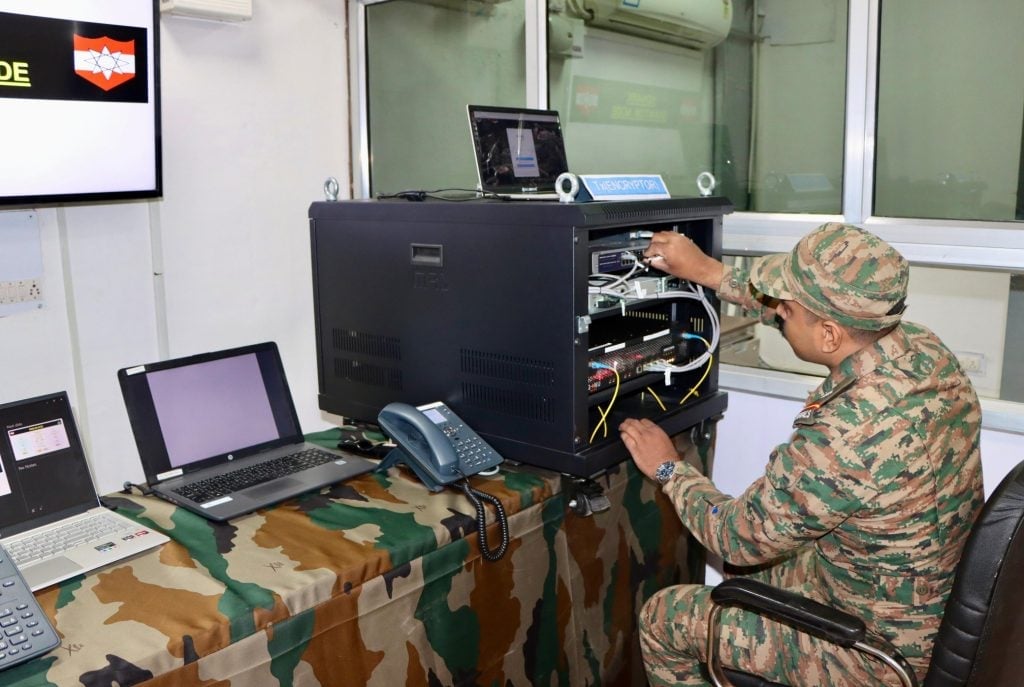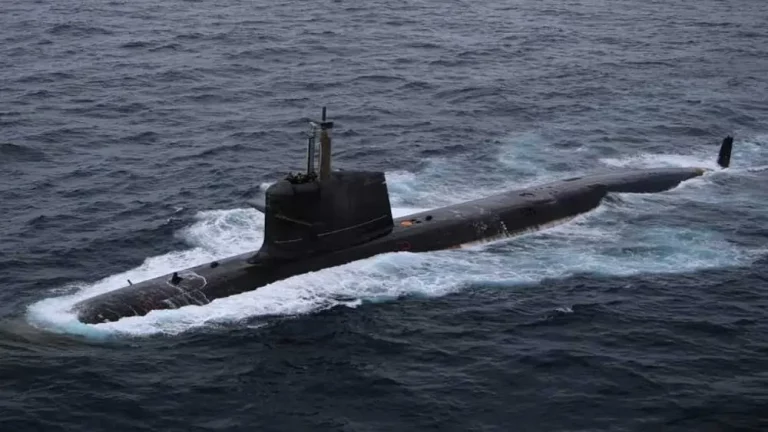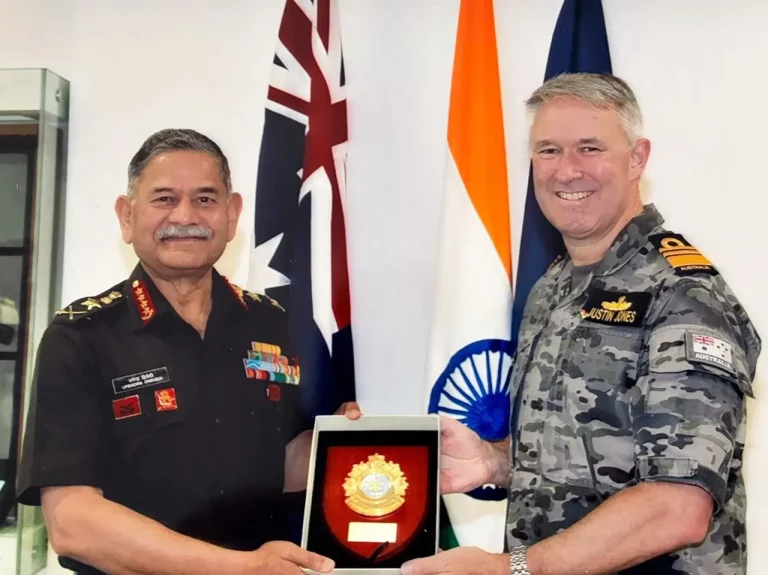In a groundbreaking move to enhance military communication, the Indian Army’s Konark Corps has successfully undertaken an innovative project focused on quantum encryption in real-world field conditions at Jodhpur. This significant achievement is part of the Innovations for Defence Excellence (iDEX) initiative, positioning the Indian Army among a select group of global forces leveraging quantum-based technologies for ultra-secure communication.
Quantum encryption represents a transformative leap from traditional cryptographic methods. Whereas classical encryption relies on computational complexity and intricate algorithms to safeguard data, quantum encryption employs the fundamental principles of quantum mechanics. Two key features of quantum mechanics, the no-cloning theorem and quantum entanglement, are central to its security framework. The no-cloning theorem establishes that identical copies of an unknown quantum state cannot be created, meaning any interception attempt would disrupt the quantum key and alert the communicating parties. Meanwhile, quantum entanglement facilitates a unique linkage between particles, enabling real-time detection of potential eavesdropping.
The focus of the Konark Corps’ project was on generating quantum secure keys in field conditions, a more challenging environment compared to controlled laboratory settings. The successful utilization of quantum key distribution (QKD) enables the secure exchange of encryption keys using qubits—the fundamental units of quantum information. Unlike classical bits, which exist as binary values (0 or 1), qubits can appear in a superposition of states, providing a significantly higher level of security for key distribution.
This project was conducted under the iDEX framework, a Ministry of Defence initiative aimed at fostering innovation and technological advancements through collaborations with startups, academic institutions, and research organizations. The iDEX program plays a critical role in tackling pressing defence challenges, with a focus on harnessing quantum technology. Recently, on October 29, 2024, Raksha Mantri Shri Rajnath Singh launched the third edition of the Acing Development of Innovative Technologies with iDEX (ADITI 3.0) challenge, which incorporated problem statements related to quantum technology and military communication, emphasizing the strategic significance of this field.
The implementation of quantum encryption in field conditions adds to India’s ongoing efforts to advance its capabilities in quantum technology. In 2021, the Indian Army established a quantum laboratory at Mhow, Madhya Pradesh, dedicated to exploring the applications of quantum mechanics in military operations. Furthermore, leading institutions like the Indian Institute of Technology (IIT) Jodhpur have been actively engaged in quantum research through their Quantum Information and Computation (QIC) group. National collaborations, such as the partnership between IIT Madras and IBM initiated in September 2022, have also bolstered India’s position in the global quantum computing arena. IIT Madras became the first Indian institution to join the IBM Quantum Network, gaining access to advanced quantum systems that propel research and development in this domain.
The successful deployment of quantum encryption in military communication carries significant implications. Traditional encryption methods, despite their robustness, face growing vulnerabilities as quantum computing advances. Quantum encryption is inherently resistant to these threats because its security is derived from the laws of physics rather than the complexity of computations. This technology ensures that sensitive communications—from tactical battlefield instructions to strategic command directives—remain safeguarded against interception. The ability to generate and distribute quantum secure keys even in challenging environments like Jodhpur’s arid landscape underscores the practical applicability and viability of this technology for military use.
Moreover, this advancement aligns with the global effort to leverage quantum technology for national security. The U.S. National Security Agency (NSA) has been at the forefront of cryptology, highlighting the significance of quantum key distribution to secure governmental and military communications. India’s entrance into this critical arena not only enhances its defense capabilities but also establishes the country as an important player in the international dialogue on quantum security.
The impressive accomplishment achieved by the Konark Corps illustrates the Indian Army’s dedication to technological innovation, heralded as a “Decade of Transformation.” By integrating quantum encryption into its operations, the Army is paving the way for future-proofed communication systems and setting an example for other sectors to explore the potential of quantum technologies. The success of this iDEX project is expected to stimulate further investments and research initiatives, potentially leading to advancements in quantum computing, sensing, and cryptography applicable to both military and civilian contexts.
As India continues to cultivate its quantum ecosystem through initiatives such as the Indian Institute of Science Quantum Technology Initiative (IQTI) and collaborations with leading global entities like IBM, the country is on a promising trajectory to become a hub for quantum innovation. The milestone achieved in Jodhpur marks a vital progression for the Indian Army in ensuring that its communication networks remain secure and resilient in the face of emerging challenges posed by the quantum era.







